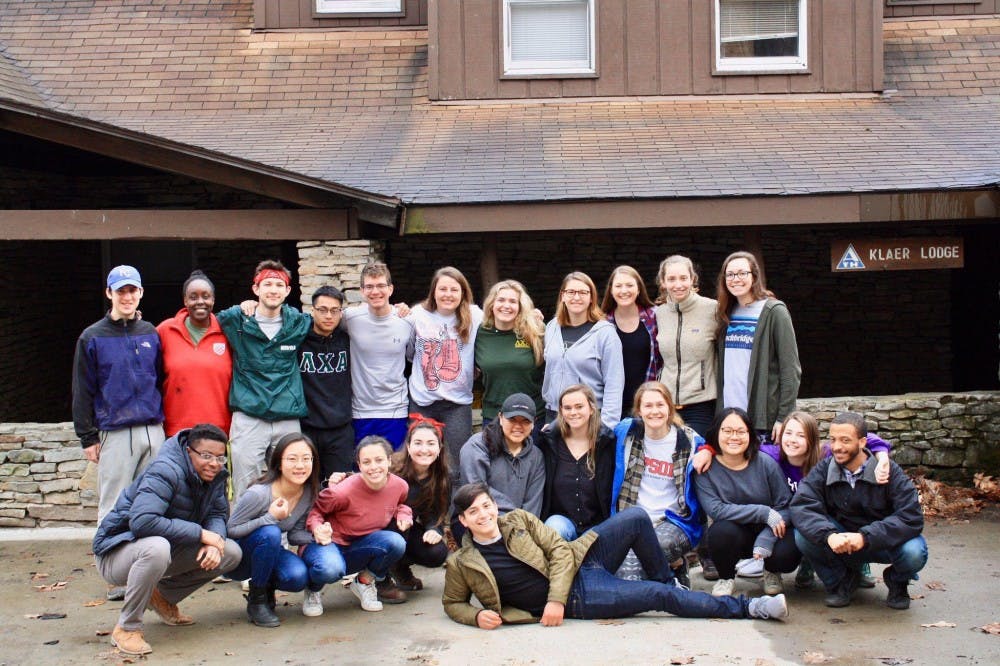During spring break, members of The SEEDS Project (Students Engaging in and Enacting a Dialogue on Service) spent time in West Virginia, Louisiana and Michigan, engaging with communities about the problems those communities face.
In West Virginia, students volunteered in coal mining communities through local organizations while learning about the impact of climate change on the coal mining industry and about the declining coal market's rippled repercussions, such as the opioid crisis.
In Louisiana, students learned about wetland loss and the effect of climate change on local habitats and communities, including Native American communities, and revisited the lasting effects of Hurricane Katrina.
In Michigan, students traveled to Detroit, the largest city in the United States to ever declare bankruptcy. They volunteered in underprivileged areas and engaged in dialogue about social justice issues such as the pros and cons of gentrification.
During their volunteer hours, students in the West Virginia and Michigan groups worked in conjunction with community centers, doing whatever projects the centers needed done at the time. This included anything from cleaning up graveyards to working in a soup kitchen, to helping schools fix bookshelves and make arts and crafts.
A group of Bonner Scholars founded SEEDS in 2006 in response to Hurricane Katrina, SEEDS president Victoria Williams said. According to the university website, Bonner Scholars are students who work with the Center for Civic Engagement by interning 10 hours per week for four years with local organizations in exchange for financial assistance for tuition.
Since 2006, SEEDS has expanded beyond only students from the Bonner program and added two more trips. Part of the organization’s five-year plan is to add a fourth trip, depending on demand and available resources, Williams said.
The trips are service-driven and educational, benefiting both the students and the communities they visit, SEEDS members and organizers said.
Members of the West Virginia trip bonded throughout the week, first-year trip member Alejandro Villalpando said. He said it had been an extremely rewarding experience.
“We all felt very blessed to have gone and felt so much love with each other and for the community that we served,” Villalpando said. “It was so genuine and sincere. None of us really had [cell phone] signals, so we were just separated from the rest of the world and so focused on each other and what we were doing.”
Junior Michael Paul, who went on his second SEEDS trip this year, agreed that one of the most rewarding aspects was the bonds and friendships made during his trip to Michigan.
One benefit of SEEDS is that it brings together students from all parts of campus, junior Callie Cinque, a member of the SEEDS leadership team, said.
Enjoy what you're reading?
Signup for our newsletter
“Although, yes, I could probably go do [service] on my own, I think it's really special to participate in service-learning with people from all different areas of campus and all different experiences that I wouldn't have met otherwise,” she said.
Williams emphasized that, although one week of service cannot solve all of a struggling community’s problems, it starts a conversation among both participants and residents of the communities that can lead to more change. It also shows members of those communities that people are willing to help.
“It’s not a monumental change,” Williams said. “It’s just showing that people care. Especially in those desolate areas that not many people pass through.”
The immense nature of the challenges these communities face was the hardest part of the experience, Paul said. He wished there were more he could have done during the trip, he said, but he understood that there was only so much that could be accomplished in one week.
“You can't solve every problem,” he said. “You can’t go into Detroit and then in one week fix it completely. But at the very least what we can do is help in what way we can, and then come back. And whatever knowledge you've learned there you could use to teach others or inspire others to go and help.”
Although the problems that certain communities in West Virginia, Louisiana and Michigan face may seem unsolvable, students on the SEEDS trips said they had been constantly inspired by the hope and optimism of the people they had met and the stories they had heard.
Villalpando told one story about an environmental activist whom Villalpando’s group met in West Virginia. The man told them that seeing a group of college students choose to spend their spring break on a service trip gave him hope for the future. He also gave the trip members string bracelets that had a special meaning.
“He said that we were all strings in the thread of life,” Villalpando said. “Eventually we're going to have to tackle this issue [climate change] and band together. We’re going to be the first generation that feels the effects of climate change, and we're going to be the last ones to try to mitigate it.”
Engaging in such dialogues and hearing stories from different perspectives taught the participants a lot, Paul and Villalpando said. It also passed some of the communities’ hope on to the students.
“The group all came to the conclusion that, no matter how bad the situation is, humanity always comes out on top,” Villalpando said.
Contact contributor Rebecca Rohn at rebecca.rohn@richmond.edu.
Support independent student media
You can make a tax-deductible donation by clicking the button below, which takes you to our secure PayPal account. The page is set up to receive contributions in whatever amount you designate. We look forward to using the money we raise to further our mission of providing honest and accurate information to students, faculty, staff, alumni and others in the general public.
Donate Now



